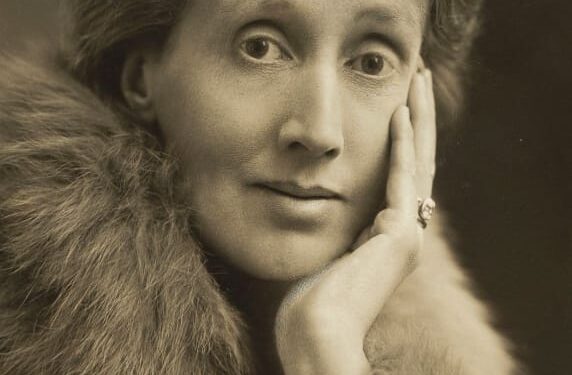Spot Light on Virginia Woolf.
By Awny Seif, Cairo
Spot Light on Virginia Woolf.
By Awny Seif, Cairo
Virginia Woolf is undeniably a brilliant writer and novelist, whose impact on the literary world cannot be overstated. Her contributions to the modernist movement and her innovative narrative techniques have solidified her status as a literary icon. Through her exploration of themes like feminism, mental health, and the human condition, Woolf’s works have managed to captivate and challenge readers for generations.
One of the most remarkable aspects of Woolf’s writing is her intelligence and ability to convey complex ideas with eloquence and precision. Her prose is sophisticated and nuanced, showcasing her profound understanding of human nature and the intricacies of the human mind. For example, in her novel “Mrs. Dalloway,” Woolf effortlessly weaves together multiple character perspectives and stream-of-consciousness narration, demonstrating her mastery of narrative techniques that were revolutionary at the time.
Furthermore, Woolf’s comprehension of the human experience is strikingly profound and insightful. Her characters are flawed, multi-dimensional beings, who grapple with the universal struggles of love, identity, and mortality. In “To the Lighthouse,” Woolf explores the intricacies of family dynamics and the transient nature of life. Her keen observations on human relationships and emotions render her characters relatable and deeply compelling.
The Critical level of analysis and interpretation deepens the understanding of Woolf’s work. One cannot discuss Woolf’s greatness without acknowledging her exploration of feminist themes. In her essay, “A Room of One’s Own,” Woolf eloquently articulates the social and economic barriers faced by women throughout history, emphasizing the need for women to have independence and creative freedom. Her ability to blend sociopolitical commentary with poetic prose showcases her intellectual prowess and unwavering commitment to gender equality.
Moreover, Woolf’s exploration of mental health in novels like “Mrs. Dalloway” and “To the Lighthouse” showcases her keen understanding of the human psyche. By delving into the complexities of mental illness, Woolf challenges societal stigmas and sheds light on the struggles faced by individuals with mental health disorders. Her portrayal of these struggles is sensitive and compassionate, further demonstrating her remarkable grasp of human emotions and experiences.
Aside from her comprehensiveness as a writer, Woolf’s works are also marked by their exquisite lyricism and poetic language. Her vivid descriptions and sensory imagery effortlessly transport the reader to the landscapes and interiors she depicts. This precise and evocative use of language is a testament to her unparalleled storytelling ability and her capacity to create unforgettable literary experiences.
Furthermore, Woolf’s contribution to the modernist movement cannot be overlooked. In an era dominated by traditional narrative structures, her experimental and avant-garde style challenged literary conventions. She embraced subjectivity, nonlinear narratives, and fragmented storytelling, pushing the boundaries of what fiction could be. As a result, Woolf paved the way for future generations of writers to explore new narrative possibilities and expand the limits of storytelling.
Woolf’s greatness lies not only in her literary achievements but also in her lasting influence on subsequent generations of writers. Her legacy as a feminist icon, mental health advocate, and pioneer of modernist literature continues to inspire and resonate with readers today. Her ability to capture the complexity of the human experience, her intellectual acuity, and her unwavering commitment to pushing the boundaries of literary artistry solidify her status as a truly remarkable writer and novelist.
In conclusion, Virginia Woolf’s intellectual prowess, comprehension of the human condition, and contributions to the literary world make her a true literary genius. Her exploration of feminist themes, portrayal of mental health, and avant-garde narrative techniques have left an indelible mark on the literary landscape. Woolf’s writings continue to engage and challenge readers, making her a writer of enduring significance and deserving of her place among the great writers of all time.









